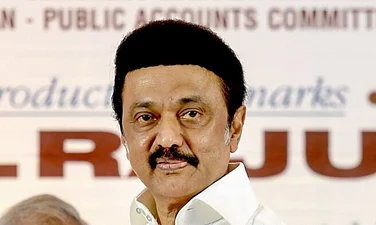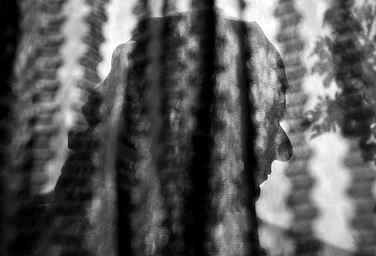Our real work starts after next year’s assembly elections. After that we have to grow on our own, not depend on anyone for support. Only then can you aim to be in power in five years.” So said Amit Shah bluntly to Tamil Nadu BJP functionaries around midnight on November 21.
The Union home minister’s remarks came in response to speakers expressing reservations about sailing with the AIADMK, after the chief minister and deputy CM declared that AIADMK’s alliance with the BJP would continue for the state elections as well. Rather than deliberating on their objections, Shah asked them to concentrate on one task—strengthen the party at the booth level. The alliance issue will be addressed by the party leadership, he told them.
“For Amit Shah everything is long term. Here we were expecting him to give us a roadmap for the coming assembly elections. Instead, he asked us to be ready for the 2026 assembly elections. He gave us the example of Northeast—on how long the BJP had been working there before making an impact electorally,” observes K. T. Raghavan, BJP state general secretary. Shah’s words also showed him to be a realist. He knew the BJP can only be a bit player in the 2021 elections, as the heavy lifting would be done by the AIADMK. That didn’t fail to stop him from planning ahead.
ALSO READ: The Big, Bold War Machine
Shah’s daylong trip to Chennai smoothed the wrinkles in the BJP’s ruffled ties with the AIADMK after the ruling party disrupted the ‘Vetrivel’ yatra of its president, L. Murugan. But Murugan, on the advice of C.T. Ravi, minder of the state BJP, pushed ahead, moving from one city to another and embarking on a short procession from a famous temple before courting arrest. “This format suits us better since every city where the procession is held becomes a hub and cadres from nearby areas join us in large numbers. We are particularly impressed by hundreds of women who join the procession, which proves that they’ve been hurt by the crass remarks against ‘Kanda Sashit Kavasam’,” says Murugan.
The BJP’s efforts to rally Hindu voters behind god Murugan by exploiting the attack on the Kavasam is part of its game plan to alter the state’s voting pattern based on caste and affiliation to either of the DMKs. “We have to factor in the legacy of Tamil Nadu. It is the land of majestic temples and great spiritual and religious works like Kamba Ramayana, Thiruppavai, Thiruvasagam and Thirukkural. How can Tamil and Hindu identities be different from one another? We are merely bridging this artificial divide created by the DMK,” reasons C.T. Ravi.
While Hindutva may take time to seep in, the BJP seems to be in a hurry to mop up leaders from other parties. “We need to have winnable candidates who have their own appeal in their constituencies…. Unlike the Congress, which first picks up seats and then hunts for candidates, we want to identify winnable seats based on candidates and our political base,” T. Narayanan, BJP spokesperson, explains the rationale behind drafting leaders from other parties.
The BJP aims to contest at least 25 to 30 seats, hoping a decent strike rate would ensure its presence, having had no representative in the state legislature for nearly two decades. It last managed to win four assembly seats as part of the DMK front, when the two parties were in the Vajpayee-led NDA. The DMK front lost miserably; ever since, the BJP has been avoided in assembly elections, though it finds allies for Lok Sabha polls.
The BJP’s immediate task is to stop the DMK from forming the next government, for which it needs the grassroots network of the AIADMK, though the ruling party may not be popular with BJP supporters. “But we are the best option the BJP presently has, since Rajnikanth’s entry looks doubtful. We are as much a Hindu party as the BJP—one reason why Jayalalithaa could walk away with BJP votes as she was seen as a Hindu leader with better chances of winning than the BJP,” observes an AIADMK Minister.
The AIADMK also needs the BJP as its presence can be used to present a stronger opposition to the DMK. The DMK may also find it difficult to tap industrialists and businessmen for donations, since they would not want to antagonise the Centre.
By G.C. Shekhar in Chennai


























